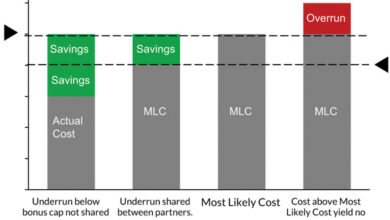Wirelines
NSTA urges more investments in emissions reduction at annual Tier Zero meeting
In its annual performance review of the UK’s top 20 operators, the North Sea Transition Authority (NSTA) urged the companies to press ahead with investing in projects to reduce CO2e emissions.
The 14 major projects on the horizon involve using low-carbon power on platforms, installing technologies designed to eliminate routine flaring and venting, and hydrogen. They require investments totaling up to £3 billion and are capable of cutting up to 32 million tonnes of lifetime CO2e emissions from production activities.
They could potentially go live between 2024 and 2030 on new and existing projects, making a significant contribution to achieving the sector’s emissions reduction targets.
However, the NSTA noted that final investment decisions have been secured for fewer than half of these projects. The regulator also stated its expectation for operators to press ahead with all of them, as well as develop more emissions reduction schemes in the coming years.
Oil and gas meet around three-quarters of the UK’s energy needs and, even as demand declines, the UK is expected to remain a net importer out to 2050. UKCS production fell by 11% last year, a decline exacerbated by unplanned outages, while production efficiency, a key metric which indicates how well companies are using their assets, was 77%, down one percentage point. At the NSTA’s annual Tier Zero meeting, operators were reminded of the longstanding 80% target and urged to redouble efforts to tackle root causes of the unreliability of some assets.
The NSTA has also promoted well interventions as a cost-effective way to boost production but noted that the intervention count fell from 450 to 402 in 2023.
Since the start of 2023, the NSTA has consented to eight oil and gas developments targeting 430 million barrels and requiring £4.4 billion of investment to improve the UK’s energy position, generate tax revenues and create supply chain jobs. In addition, operators are working on proposals for 14 oil and gas projects capable of yielding more than 750 million barrels. All proposals must go through a net zero assessment to make sure they are compatible with net zero targets.
The NSTA also noted that the industry reduced its production emissions by 23% between 2018 and 2022, and preliminary data suggests a further drop in 2023. However, more abatement measures may be needed to ensure the industry can deliver on its commitments to cut emissions by 50% by 2030 and 90% by 2040, on the way to net zero by 2050.
NSTA chiefs also used the Tier Zero meeting to call for licensees to meet their commitments on well decommissioning. As the basin continues to mature, more wells will require plugging and abandonment. The NSTA is spearheading a project to identify which UKCS wells will be ready for decommissioning between 2026 to 2030 and assess the supply chain capacity required to undertake the work.
LLOG and SLB win NOIA’s 2024 Safety in Seas awards
The National Ocean Industries Association (NOIA) announced LLOG and SLB as winners of the 2024 NOIA Safety in Seas Award Competition. LLOG is the Culture of Safety winner, while SLB won the Safety Practice award.
LLOG’s entry outlines a journey toward fostering an empowered safety culture. Leaders at LLOG have methodically cultivated a supportive and transparent environment that encourages the sharing of concerns, mistakes and observations. The response of leadership, particularly to adverse news, plays a pivotal role in nurturing this environment. One tangible manifestation of this safety culture is LLOG’s Subsea Integrity Management Program (SIMP). SIMP represents a risk-based safety approach to managing critical subsea components. It utilizes digital twins to analyze standard monitoring data and conduct real-time assessments of subsea components. Importantly, SIMP is integrated throughout the design process, not just post startup. As a result of this safety-focused approach, LLOG consistently surpasses industry averages in safety metrics.
SLB’s Safety Practice entry sheds light on a common industry challenge: What occurs when safety performance levels off? SLB concentrated on amplifying the engagement of both employees and contractors, empowering them to voice concerns at any given moment. One notable initiative, the Live Well Program, is part of a holistic health strategy addressing mental health and emotional well-being.
Moreover, SLB is piloting the Unlock Your Power program, which furnishes employees with tools and strategies to bolster self-awareness and resilience to stress, integrating neuroscience, attention training, and emotional intelligence awareness. In tandem with the continuous adoption of digital tools, teams can leverage video monitoring and gather insights from previously unmonitored data to further augment positive reinforcement and continuous improvement efforts.
IADC joins IMO Maritime Safety Committee meeting
From 15-24 May, the International Maritime Organization (IMO) held its 108th session of the Maritime Safety Committee. Key topics discussed included:
- Developing regulations for Maritime Autonomous Ships (MASS)
- Continuing work on greenhouse gas (GHG) roadmap strategies
- Addressing cybersecurity concerns and updating the IMO’s cybersecurity guidelines
At this session, IADC continued to monitor developments on MASS and GHG and participated in completing revisions to the IMO’s Guidelines on Maritime Cyber Risk Management (MSC-FAL.1/Circ.3/Rev.3). The updated guidelines provide clearer definitions, more technical resources, and refined recommendations for cyber-security management plans. These guideline revisions still need approval from the IMO’s Facilitation Committee in 2025 before becoming effective.
Since 1975, IADC has retained its observer delegate status at IMO.



